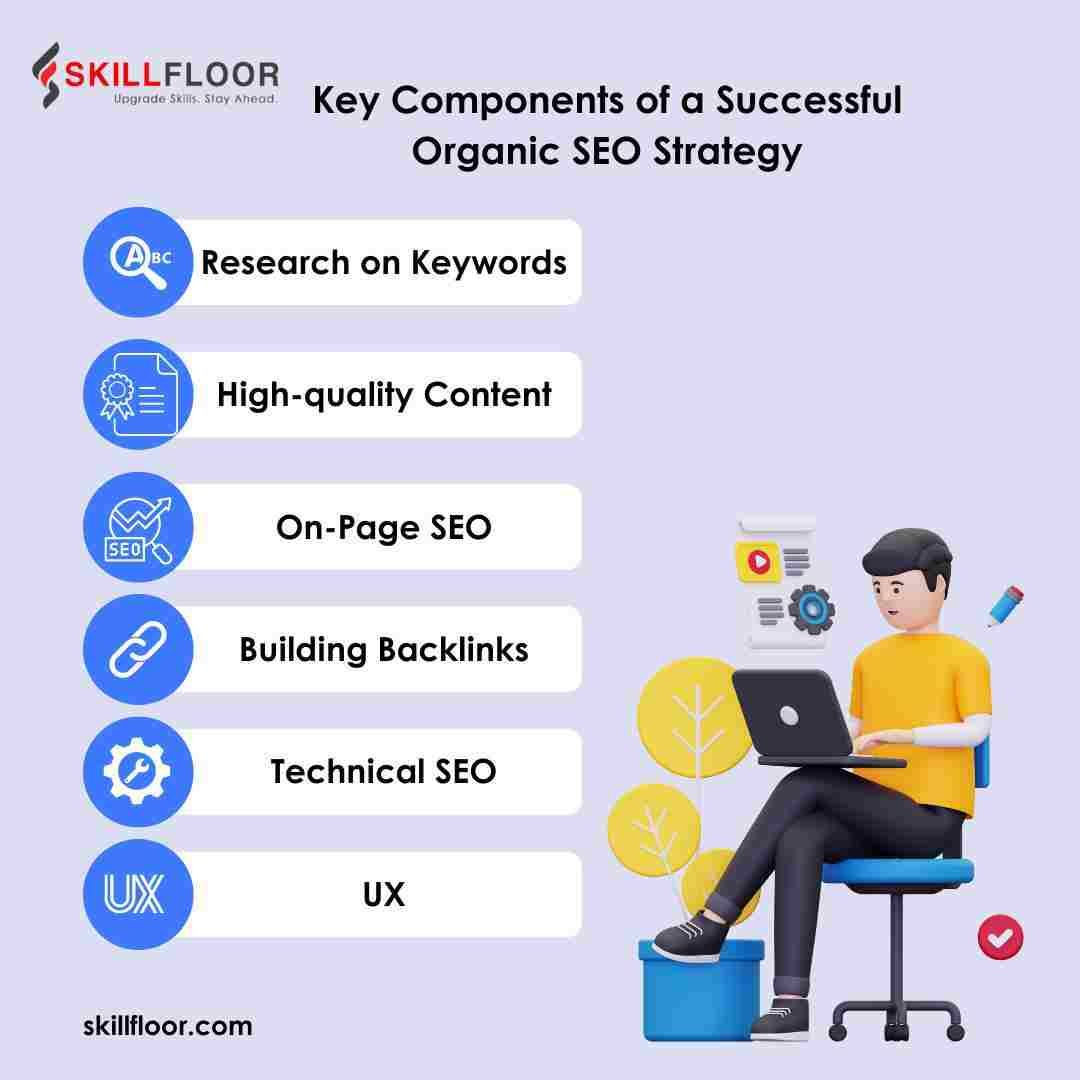Why Organic SEO is Essential for Your Business
Discover why organic SEO is crucial for your business success. Learn how to improve visibility and drive growth with effective SEO strategies.

Any company looking to improve its online presence and draw in more business needs to invest in organic SEO. It is sustainable to rely just on paid advertising in the current digital environment. The goal of organic SEO is to increase your website's exposure in search engine results by using organic strategies including backlink building, keyword optimization, and high-quality content production. Businesses can enhance their audience's long-term credibility and trust by putting Organic SEO strategies into practice. This will improve website traffic and boost conversion rates. Organic SEO offers reasonable options and long-term growth, in contrast to sponsored advertisements. Whether you own a major corporation or a small business, understanding why Organic SEO is essential for your business can help you stay competitive. Implementing Organic Search Engine Optimization (SEO) techniques improves user experience and increases search engine ranks, making it an essential component of any digital marketing plan.
What is Organic SEO?
The technique of increasing your website's contact on search engine results pages (SERPs) without having to pay for advertisements is known as organic SEO or organic search engine optimization. In contrast to Pay-per-click (PPC) advertising, which demands payment each time a user clicks on your advertisement, Organic SEO concentrates on securing your place organically through strong website architecture, high-quality content, and useful keywords.
The Benefits of Organic SEO for Your Business
1. Cost-effective
Your marketing budget can be quickly spent by PPC and Google Ads, while organic SEO just needs a time and effort investment. Your content doesn't need to be updated to continue drawing visitors once it begins to rank.
2. Long-Term, Sustainable Results
As soon as you stop paying, paid advertising ceases to function. On the other hand, organic SEO results build up over time. For years to come, your website can generate leads and visitors from well-written, timeless content.
3. Increased Trust and Credibility
Ads are typically not as trusted by users as organic search results. When your company ranks highly in organic search results, prospective clients will regard it more favourably and trust you.
4. Better ROI
Compared to PPC advertising, Organic SEO frequently yields higher conversion rates because it targets those who are actively looking for your goods or services.
5. A Improved User Experience
Good SEO techniques improve user experience by speeding up site loading times and enabling easier navigation. This keeps users happy and engaged in addition to improving search engine results.
Key Components of a Successful Organic SEO Strategy

1. Research on Keywords
Determine the appropriate search terms that your target market uses to find your goods or services. To identify appropriate phrases with a large search volume and little competition, use tools such as Google Keyword Planner.
2. High-quality Content
When it comes to organic SEO, content is king. Provide insightful, timely, and interesting content that addresses the worries and questions of your audience. This covers articles, videos, infographics, and blog entries.
3. On-Page SEO
Optimize the HTML source code and content of your website. This involves making sure your website is quick and mobile-friendly in addition to utilizing pertinent keywords in your headers, content, and meta descriptions.
4. Building Backlinks
Acquire backlinks from reputable online sources. Search engines are strongly informed by high-quality backlinks that your content is reliable and valuable.
5. Technical Search Engine Optimization
Make sure the technology on your website is solid. This includes making sure your website loads quickly, making sure it's responsive to mobile devices, and fixing any broken links or errors.
6. UX, or user experience
Make your website visually beautiful, easy to use, and load quickly to improve the user experience. A strong user experience lowers bounce rates and helps in visitor engagement.
How Organic SEO Outperforms Paid Advertising
1. Cost-Effectiveness
Spending on organic SEO doesn't have to be ongoing. In contrast to PPC, which charges you for each click, if your content is ranked, it can hold its place with little additional expense over time.
2. Credibility and Trust
Users find organic search results to be more reliable than sponsored ones. Increased engagement and conversion rates may result from this trust.
3. Sustainability
An effective Organic SEO campaign can produce a consistent flow of visitors for years to come without requiring ongoing financial support.
4. Comprehensive Reach
Unlike PPC, which is typically focused on certain, frequently competitive keywords, organic SEO targets a variety of phrases and user intentions, allowing you to reach a wider audience.
Common Misconceptions about Organic SEO
1. There is no cost for organic SEO
Even though you don't have to pay for clicks, content creation and optimization for organic search takes a lot of time and work.
2. Quick Outcomes
The goal of organic SEO is long-term. Although noticeable results may not appear for several months, patiently waiting for steady traffic growth will pay off.
3. Assign and Ignore
SEO is a continuous effort. To preserve and raise ranks, regular updates, content production, and optimization are required.
Tips for Getting Started with Organic SEO
1. Start with a website audit first.
Examine your present website to determine its advantages and disadvantages. SEMrush and Google Analytics are two tools that can aid with this.
2. Focus on Content
Provide insightful, high-quality material that responds to the concerns and queries of your target audience. Update your blog and other content sections frequently.
3. Optimize for Mobile
Make sure your website works on mobile devices. Search engines give preference to mobile-friendly websites as more people access the internet through mobile devices.
4. Make Use of Social Media
Sharing your material on social media networks can increase traffic and possibly even generate backlinks, even if social media signals have no direct impact on SEO.
5. Create High-Quality Backlinks
Prioritize obtaining backlinks from respectable websites inside your sector. You may greatly improve your search engine rankings by doing this.
6. Keep an eye on and adjust
To keep an eye on your SEO performance, use tools like Analytics and Google Search Console. Make adjustments to your plan in light of what is and is not working.
For every company looking to improve its online presence and draw in more clients, organic search engine optimization is an essential strategy. Businesses can obtain long-term, sustainable results by focusing on keyword research, producing high-quality content, optimizing the website on-page and technically, and developing reliable backlinks. Organic SEO is a crucial part of any digital marketing strategy since it enhances user experience and search engine rankings while also building credibility and trust.






























































